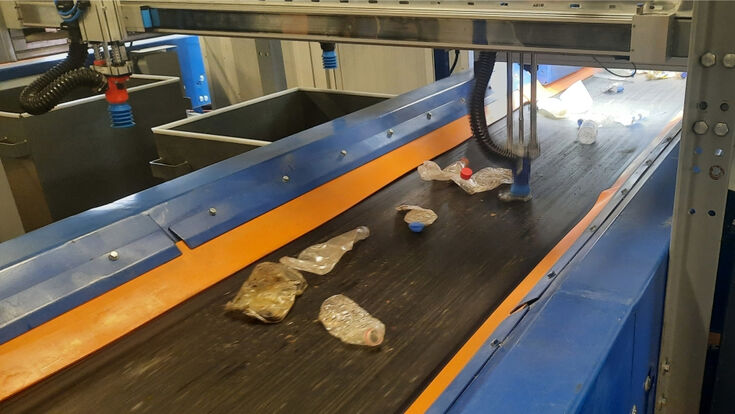Reclaim Waste Melbourne: Advanced Approaches for Reliable Liquid Waste Removal
Reclaim Waste Melbourne: Advanced Approaches for Reliable Liquid Waste Removal
Blog Article
Fostering Resource Performance and Environmental Management With Liquid Waste Elimination Programs
In the realm of environmental stewardship, the management of fluid waste stands as an essential juncture where source efficiency and environmental protection merge. With a lens of positive interaction and critical foresight, the landscape of liquid waste monitoring reveals a tapestry of obstacles and opportunities that beckon us to discover the path towards a greener and even more lasting future.
Significance of Liquid Waste Removal
The significance of liquid waste elimination hinges on its essential role in protecting environmental health and wellness and guarding public health. Fluid waste, otherwise appropriately handled, can posture significant risks to ecological communities, water sources, and human health and wellness. With effective removal procedures, harmful compounds such as pollutants, chemicals, and microorganisms are prevented from contaminating the setting and causing destructive effects.
Appropriate fluid waste removal additionally helps in stopping the spread of diseases and reducing the capacity for groundwater contamination. By safely getting rid of fluid waste, the risk of waterborne diseases and pollution-related health concerns is substantially minimized - Liquid waste removal. Furthermore, reliable removal practices contribute to keeping the total sanitation and aesthetic appeals of areas, thus boosting the quality of life for homeowners
Furthermore, liquid waste removal plays an essential duty in sustaining lasting advancement and guaranteeing conformity with environmental policies. By adhering to correct waste management companies, markets and procedures can minimize their ecological footprint and demonstrate corporate duty. Eventually, purchasing robust fluid waste elimination programs is important for promoting environmental stewardship and fostering a healthier, much safer future for all.

Advantages of Reliable Disposal
Effective disposal of liquid waste not just safeguards environmental wellness and public wellness however additionally produces countless advantages that prolong past instant control measures. Via processes like reusing and power recuperation, useful resources can be drawn out from liquid waste, promoting sustainability and decreasing the strain on raw products. Generally, the benefits of reliable liquid waste disposal are diverse, incorporating environmental security, source efficiency, and financial advantages.
Technologies for Waste Therapy
Making use of advanced technologies for waste therapy plays a vital role in making sure the reliable administration and risk-free disposal of fluid waste. One of the crucial technologies utilized in liquid waste therapy is organic treatment. This approach uses microorganisms to damage down raw material in the waste, converting it right into harmless byproducts. An additional common modern technology is chemical treatment, where chemicals are added to the waste to neutralize dangerous components or speed up contaminations for elimination. Physical treatment approaches, such as filtering and sedimentation, are likewise commonly utilized to divide solids from liquid waste.
Advanced oxidation processes (AOPs) have actually obtained popularity for their ability to degrade relentless natural toxins in fluid waste through the generation of highly responsive hydroxyl radicals. Membrane layer technologies like reverse osmosis and ultrafiltration work for separating contaminants from fluid waste streams. Additionally, thermal treatment techniques such as incineration can be employed for the full damage of hazardous components in liquid waste. Overall, the integration of diverse therapy modern technologies makes certain eco friendly and thorough monitoring of fluid waste.
Role of Regulations and Conformity
In the realm of liquid waste administration, adherence to regulative structures and compliance standards is vital for safeguarding environmental health and wellness and sustainability. Laws play an important duty in controling the correct handling, therapy, and disposal of fluid waste to avoid harm to ecological communities and human health. By developing clear standards and criteria, regulative bodies make sure that services and individuals involved in liquid waste management run in an ecologically liable way.
Compliance with these laws is not just a lawful demand but also an honest responsibility to safeguard the atmosphere for current and future generations. It includes implementing ideal techniques in waste collection, disposal, transportation, and therapy to minimize ecological effect and advertise resource performance. Non-compliance can lead to fines, lawsuit, and reputational damages for companies, highlighting the relevance of promoting regulatory standards.

Future Fads in Waste Monitoring

One more essential trend in waste monitoring is the adoption of advanced information analytics and expert system to enhance waste collection courses, improve arranging procedures, and improve total functional performance. These innovations make it possible for waste monitoring companies to make data-driven decisions, causing cost savings and ecological advantages.
In addition, there is a growing emphasis on the growth of decentralized waste management systems, such as onsite treatment facilities and mobile waste processing units. These systems provide adaptability and scalability, enabling more effective waste handling in varied settings.
Final Thought
In verdict, cultivating resource performance and environmental management through fluid waste removal programs is essential for sustainable development. Reliable disposal methods, progressed technologies for waste treatment, and stringent laws play vital duties in lessening environmental influence. Looking in advance, continuous technology and renovation in waste administration techniques will be important for addressing the growing obstacles of fluid garbage disposal.
In the realm of ecological stewardship, the monitoring of liquid waste stands as an important time where resource effectiveness and ecological defense merge (Reclaim Waste Melbourne).Making use of innovative innovations for waste treatment plays a critical role in making sure the effective monitoring and secure disposal of liquid waste.In the world of liquid waste administration, adherence to regulative structures and compliance criteria is paramount for safeguarding ecological wellness and sustainability.In final thought, fostering source effectiveness and environmental protection via fluid waste removal programs is crucial for lasting development. Looking ahead, continuous development and enhancement in waste management techniques will be vital for resolving the expanding difficulties of liquid waste disposal
Report this page